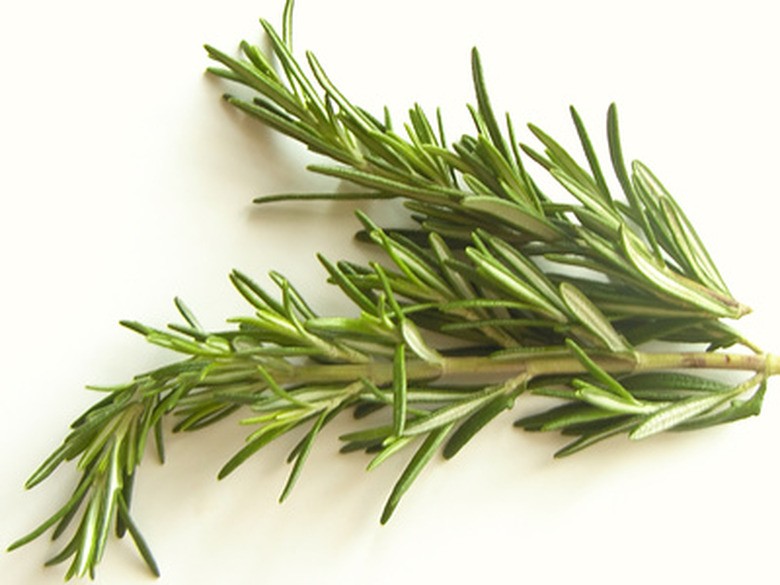How To Winterize Rosemary Plants
A fragrant and flavorful herb used in many dishes, rosemary can be grown relatively easily in any herb garden. When winter comes, however, your strong, productive rosemary may suffer from exposure to cold temperatures. Bring it indoors, or winterize it by cutting the plant back and covering it. In the spring your rosemary should be ready to give you wonderful new growth and scents.
Step 1
Wait for the first hard frost to occur. Use the pruners to cut the stems of the rosemary plant back to only a couple of inches from the ground.
Step 2
Cover over what remains of the rosemary with garden soil or compost so none of the plant is showing.
- A fragrant and flavorful herb used in many dishes, rosemary can be grown relatively easily in any herb garden.
- In the spring your rosemary should be ready to give you wonderful new growth and scents.
Step 3
Add four to five inches of mulch over the soil layer to fully lock in temperatures and protect the roots of the rosemary from freezing over the winter months.
Step 4
Look for new growth to start poking through the mulch in the spring after evening and nighttime temperatures are holding above freezing.
Step 5
Pull back the mulch and soil layers once you see new growth and leave only a 2-to-3-inch layer of mulch around the base of the plant for the growing season.
Care For Rosemary Plants
Rosemary is one of those plants that multitasks very well. It grows in hard-to-grow places, such as rocks and dry areas. And it provides you with a seasoning that can flavor your food all year long. Rosemary is great for seasoning poultry, lamb, stews and soups. Rosemary is a member of the mint family. If you want to get a head start, you can plant seeds or cuttings indoors, eight to 10 weeks before the last spring frost. Rosemary may survive the winter and return in the spring, especially in Zones 7 through 9, and possibly in Zone 6 if planted in a sheltered area. Rosemary grows very well indoors. Choose a spot that gets at least six to eight hours of sunlight each day. Rosemary will grow about 4 feet tall and equally as wide. Water deeply once or twice a week throughout the growing season, depending on the weather. In very wet, heavy soil, rosemary is subject to root rot. Prune the stems when the plant starts to look ragged. In the spring, use a slow-release fertilizer. If you decide to plant your indoor rosemary outdoors in the spring, remove it from the pot, cut away dead and circling roots and break up the root ball before planting. Rosemary can be used as a flavoring for grilled bread and can be used in a marinade with wine, olive oil and garlic.
- Add four to five inches of mulch over the soil layer to fully lock in temperatures and protect the roots of the rosemary from freezing over the winter months.
Things Needed
- Hand pruners
- Garden soil or compost
- Mulch (straw, pine needles, chopped leaves, hardwood bark)
Warning
Don't cut back or cover the rosemary before the first hard frost or you may be trapping in soil temperatures which are too high and can actually harm the plant by not allowing it to harden up for winter.
Tip
If you live in a climate with extremely cold winters that typically drop below zero, consider growing your rosemary in a container. Before frost, bring the plant indoors for the winter and keep it in a cool (45 degrees F) location where it can get some sun. Keep it well watered.
References
- "The Edible Herb Garden"; Rosalind Creasy; 1999
- NC State University: Winterizing the Herb Garden
- Old Farmer's Almanac: Growing Rosemary: Planting, Growing and Harvesting Rosemary Plants
- Plant Care Today: How to Care for the Herb Rosemary
- Burpee: Growing Rosemary in Your Home Garden
- University of Maryland Extension: Rosemary Care Indoors
